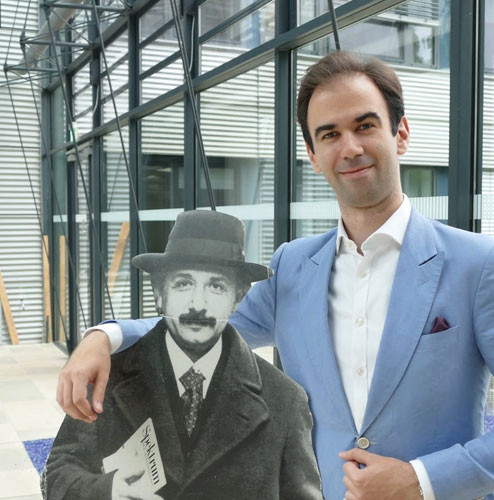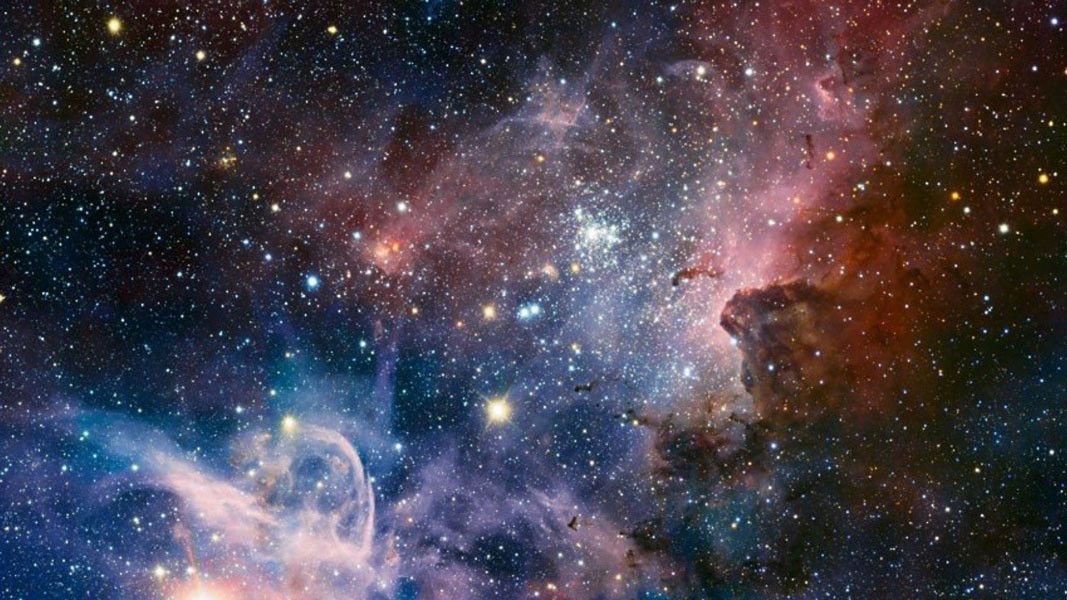The big questions about the origin of the universe, about time travel, the existence of extraterrestrial mind and reaching other planets have always interested young scientist Deyan Mihailov. As a boy he used to spend many hours thinking about how it was possible for the universe to have no end and in high school he realized he wanted to devote himself to science. His vocation took him to Oxford and Cambridge, where he graduated from and had his doctorate in astrophysics.
“Over the last millennium, scientists have been able to answer many questions related to astronomy and astrophysics, but they, in turn, raised even more difficult questions that we still cannot find answers to,” Deyan Mihaylov says. That is why, according to him, this process would never end and there would always be new discoveries raising new questions. For example, the discovery of gravitational waves, predicted a century ago by Einstein, has opened a new window for studying the universe. Gravitational waves is the topic the scientist devoted his efforts to in one of the Max Planck Institutes in Berlin.
 “When gravitational waves were first detected in 2015, it was a turning point for the development of astrophysics,” Deyan Mihaylov says. “Astronomers had previously relied only on light coming from distant objects to study them, but now they could hear their movement. I started my doctorate a few months before gravitational waves were detected and had the opportunity to be involved in this international effort from the very beginning. I focused on the so-called low-frequency gravitational waves that, if detected one day, would tell us how the universe emerged and what were the first processes after the Big Bang.”
“When gravitational waves were first detected in 2015, it was a turning point for the development of astrophysics,” Deyan Mihaylov says. “Astronomers had previously relied only on light coming from distant objects to study them, but now they could hear their movement. I started my doctorate a few months before gravitational waves were detected and had the opportunity to be involved in this international effort from the very beginning. I focused on the so-called low-frequency gravitational waves that, if detected one day, would tell us how the universe emerged and what were the first processes after the Big Bang.”
During his work at Cambridge, Deyan Mihailov met Stephen Hawking. The brilliant astrophysicist even went to a seminar by the Bulgarian.
“Stephen Hawking was the reason I went to Cambridge because he had turned the institute there into a world center for the development of astrophysics,” Deyan Mihailov says. “So it was extremely exciting for me when I first saw Stephen Hawking. During my time at Cambridge, I had the opportunity to talk to him several times and the questions I asked him were related to the future of astrophysics after the discovery of gravitational waves, and whether we would someday find answers to questions that he himself did not manage to find. According to him, this would happen – whether in ten or a hundred years, since humans will always have this excitement and curiosity that drives them to understand more about the universe.”

Does the young scientist agree with Stephen Hawking's opinion that in a few centuries, humanity would destroy the Earth and therefore must seek for a new home?
“If a natural phenomenon, an asteroid or a world war threatened to destroy the planet, we must have a backup plan,” he replies. “We must continue the human race and from this point of view it is imperative to establish a colony on another planet. The first and closest opportunity is Mars, where we could establish a colony in the next 10-20 years, although it would be very difficult and expensive. Indeed, we do not have the technology to reach other planets, but two hundred years ago we had no way of getting to the moon or Mars. It is therefore important that we continue to develop and do new things – even if they might seem almost impossible at the moment, they could still be achieved through new technologies.”
Deyan Mihailov says he would love to live on Mars someday, but in the meantime, he is dedicated to finding out what happened in the first seconds after the Big Bang.
English: Alexander Markov
Photos: courtesy of Deyan MihailovThe 33rd Bulgarian polar expedition is heading to Antarctica to continue its scientific research in cooperation with scientists from different countries. For the first time, travelers from two Balkan countries - Greece and Montenegro, as well as from..
The program of the Orthodox Book Week offers meetings with authors, publishers and translators of Orthodox books from the last few years. The event is held until November 10 at the ''St. Procopius of Varna'' Church, with meetings taking place every..
The "Kabiyuk" horse breeding farm in the village of Konyovets is the oldest stud farm in Bulgaria, founded in 1864 by Midhat Pasha, the governor of the vilayet of Ruse, to produce horses for the Turkish army. The farm existed until the Russo-Turkish War..
For the 30th consecutive year, the Bulgarian Posts organize a contest for the most beautiful letter to Santa Claus. Letters must be sent by 18..

+359 2 9336 661
